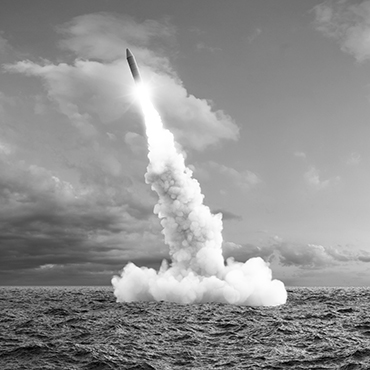DEFIANT IN MOSCOW...
Vladimir Putin is minimizing the significance of the late November naval clash in the Sea of Azov. In his initial public comments after the Russian navy attacked and seized three Ukrainian vessels on November 26th, Russia's president appeared unconcerned by threats from the White House to cancel a planned presidential meeting at the upcoming G20 summit, or by the potential for new Western sanctions. Instead, he blamed Kyiv, claiming that the Ukrainian vessels in question had entered Russian waters illegally and that the entire incident was merely a "provocation" staged by Ukrainian President Petro Poroshenko to revive his flagging popularity ratings and impose martial law in the lead-up to the Ukrainian elections next year. Both Putin and Russian Foreign Minister Sergei Lavrov expressed their additional regret that the West is encouraging Ukraine's anti-Russian actions, and a Kremlin aide confirmed that Putin was refusing to speak to Poroshenko directly as he prepares to bolster Russia's military presence in the region.
Those plans are rapidly taking shape. On November 29th, Russia deployed a fourth battery of its advanced S-400 surface-to-air anti-missile system to the territory, which it annexed following a stage-managed political referendum in 2014 - and the sovereignty of which Kyiv continues to contest. (Reuters, November 28, 2018; Radio Free Europe/Radio Liberty, November 30, 2018)
...AND CAUTIOUS IN KYIV
Rising tensions with Russia in the aftermath of the Sea of Azov incident have prompted the Ukrainian government to impose martial law across nearly half the country. Despite five years of fighting in eastern Ukraine, this marks the first time martial law has been declared, and reactions so far have been mixed. While some have supported the Ukrainian government's decision, political opponents of Ukrainian president Petro Poroshenko suggest an ulterior motive - highlighting that the declaration includes provisions restricting free speech and assembly, and that the provinces under martial law are Russian-speaking areas where the Ukrainian president is deeply unpopular. Rada deputies from these regions have alleged that Poroshenko is manipulating the political process to suppress political expression in key opposition areas, especially if he opts to use the martial law decree to forcefully postpone election procedures. (Washington Post, November 29, 2018)
PUNISHING PUBLIC ASSEMBLY
Human rights advocate Lev Ponomaryov was imprisoned in early December by a Moscow District Court over his role in a public backlash against the government’s ongoing investigations of alleged youth extremist groups. The pretext for Ponomaryov's incarceration? The court found that the 77-year-old activist had violated Russian public assembly laws after allegedly encouraging people to attend an unauthorized protest outside Federal Security Service headquarters in October. The aging human rights campaigner has been sentenced to 25 days in jail. (Meduza, December 5, 2018)
PUTIN THREATENS A NEW ARMS RACE...
Russian President Vladimir Putin has made no secret of his government's planned response to U.S. withdrawal from the Intermediate-Range Nuclear Forces (INF) Treaty. After Secretary of State Mike Pompeo formally announced the 60-day deadline for withdrawal, Putin charged that the decision signals America's intention to develop a previously prohibited class of weapons and promised that "we will do the same." Russian General Staff Chief Valeriy Gerasimov confirmed at a subsequent briefing that any European countries hosting future American intermediate-range missiles would be considered immediate targets by the Russian government. (London Daily Mail, December 5, 2018)
...AS NATO CLOSES RANKS
NATO nations, meanwhile, are forging a united front in the face of Russian threats. At a meeting on December 4th, the Foreign Ministers of the NATO member states jointly concluded that Russia's new SSC-8 missile system violates the INF Treaty, creating grave risks to the security of the Alliance. All of the ministers reaffirmed the commitment of their respective countries to nonproliferation and arms control, and called on the Kremlin to return to compliance with the INF Treaty and thereby prevent a new arms race. (NATO Newsroom, December 4, 2018)
Want these sent to your inbox?
Subscribe


